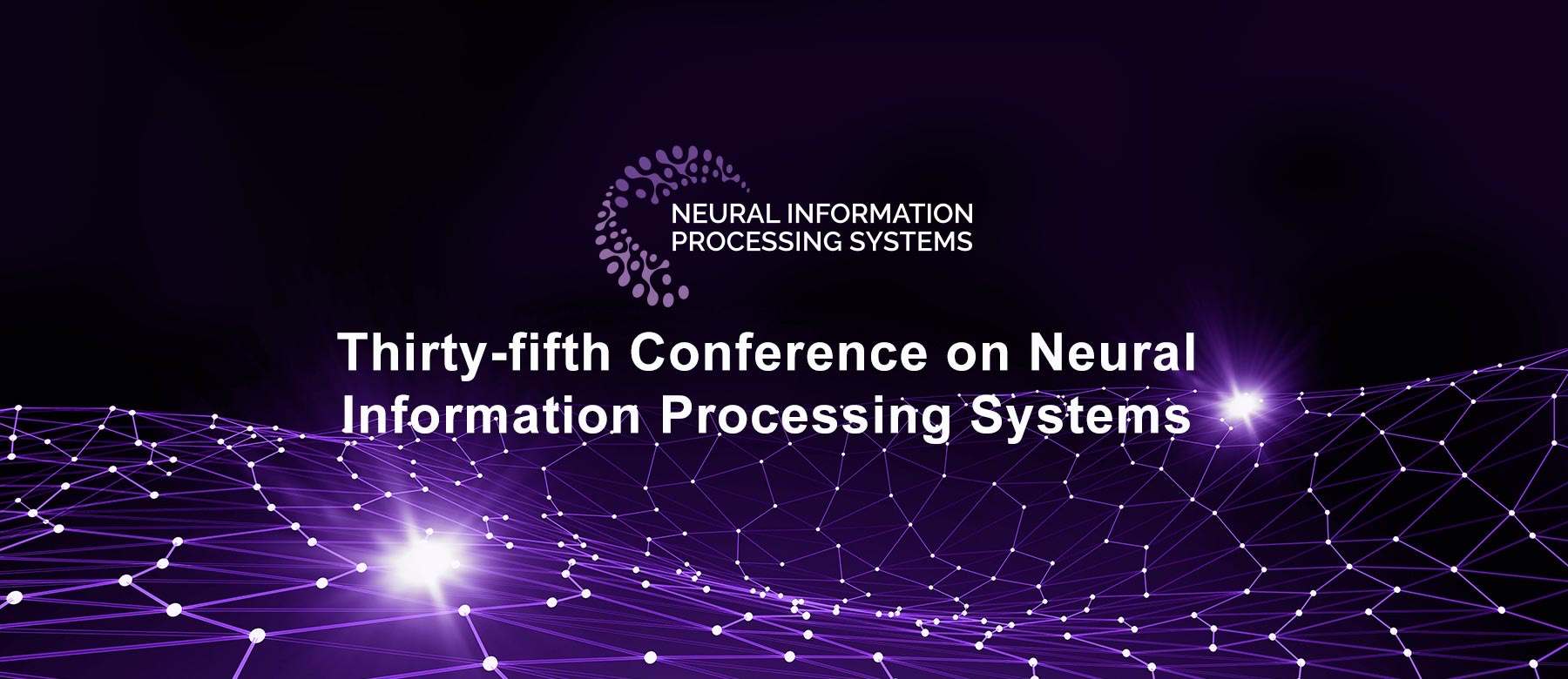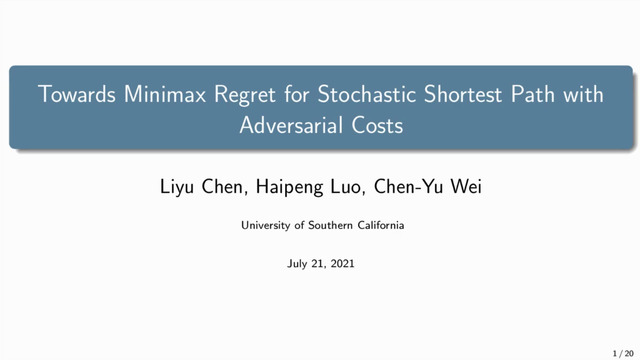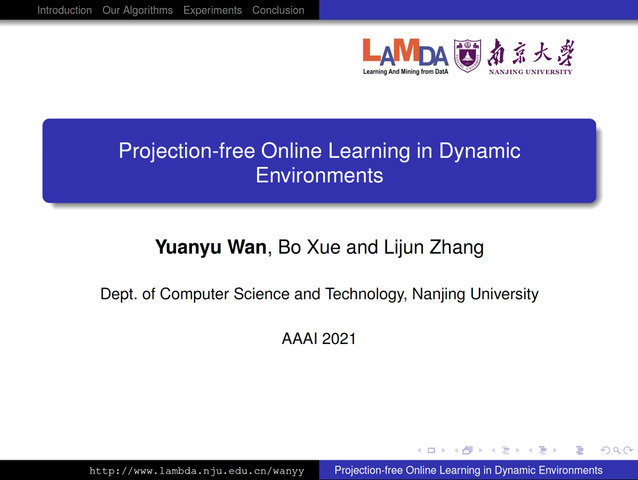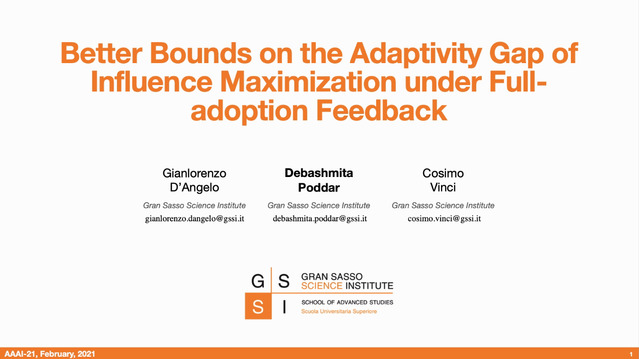Abstract:
We initiate a systematic study on {\em dynamic influence maximization} (DIM). In the DIM problem, one maintains a seed set $S$ of at most $k$ nodes in a dynamically involving social network, with the goal of maximizing the expected influence spread while minimizing the amortized updating cost. We consider two involution models. In the {\em incremental model}, the social network gets enlarged over time and one only introduces new users and establishes new social links, we design an algorithm that achieves $(1-1/e-\epsilon)$-approximation to the optimal solution and has $k \cdot\mathsf{poly}(\log n, \epsilon^{-1})$ amortized running time, which matches the state-of-art offline algorithm with only poly-logarithmic overhead. In the fully dynamic model, users join in and leave, influence propagation gets strengthened or weakened in real time, we prove that under the Strong Exponential Time Hypothesis (SETH), no algorithm can achieve $2^{-(\log n)^{1-o(1)}}$-approximation unless the amortized running time is $n^{1-o(1)}$. On the technical side, we exploit novel adaptive sampling approaches that reduce DIM to the dynamic MAX-k coverage problem, and design an efficient $(1-1/e-\epsilon)$-approximation algorithm for it. Our lower bound leverages the recent developed distributed PCP framework.









































